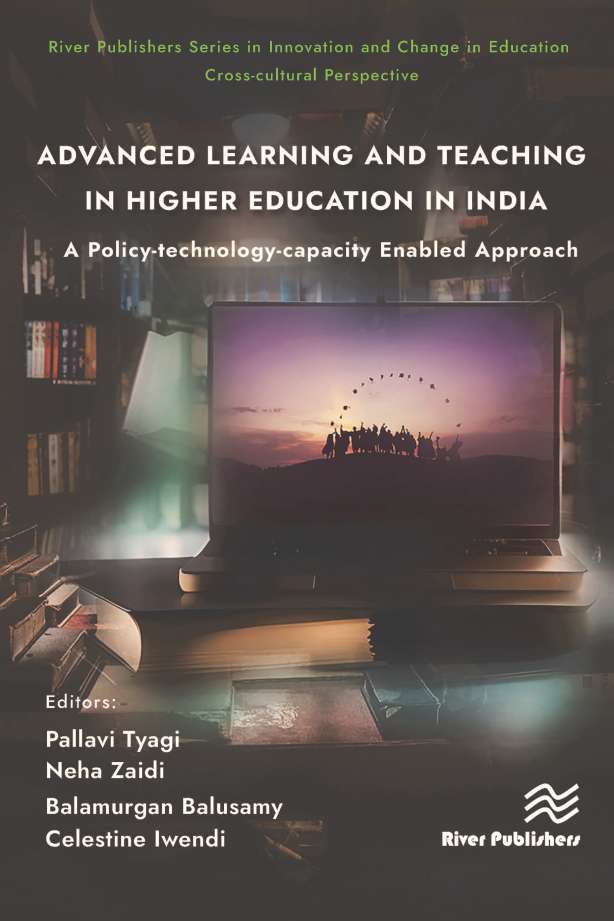
Advanced Learning and Teaching in Higher Education in India: A Policy-technology-capacity Enabled Approach
River Publishers Series in Innovation and Change in Education - Cross-cultural Perspective
Advanced Learning and Teaching in Higher Education in India: A Policy-technology-capacity Enabled Approach
Editors:
Pallavi Tyagi, Amity University, India
Neha Zaidi, Sharda University, India
Balamurgan Balusamy, Shiv Nadar University, India
Celestine Iwendi, University of Bolton, UK
ISBN: 9788770040310 e-ISBN: 9788770040303
Available: October 2023
This book comprehensively covers the evolution of advanced learning pedagogy and innovative technologies like open educational resources and blended learning models. It specifically talks about the future of technology-enhanced learning and how advanced technology and government policies together are trying to impact learning outcomes globally. Nowadays in a flexible learning environment, technology plays a significant role in higher education systems. Both educators and students are playing prominent roles in its successful implementation. Advanced learning pedagogy by using technology has not only changed teaching procedures but has also evolved the relationship among multiple stakeholders.
The content of the book is neatly segregated into four parts. Part I covers the concept and evolution of digital learning and education technology. This part examines the role of technology in higher education and proposes a toolkit for personalized learning and continuous assessment.
Parts II and III creatively represent the innovative teaching techniques and learning models under advance learning pedagogy. Chapters under parts II and III are specially designed to present the more simplistic view of various technology-based advanced learning models and resources like flipped classes, gaming designs for e-learning, etc. Part III of the book also extensively covers various case studies/instructor’s stories of technology enabled learning experiences.
Part IV focuses on the evaluation of advance learning pedagogy and tools. It also covers the future of information in learning (like formative analytics) and improved learning outcomes using technology and government initiatives in the form of various future oriented education policies like the Digital Action Education Plan (2021–2027).
The wide-ranging content also covers the challenges of implementation of advanced learning pedagogy and offers recommendations to overcome such challenges. The book will grab the attention of the modern (IT-enabled) instructor’s fraternity, and students and researchers in the area of technology and education. The book can be further used by policymakers and educational-technology startups to formulate and design technology-based higher education teaching policies and procedures which are indeed helpful in measuring learning outcomes.
Parts II and III creatively represent the innovative teaching techniques and learning models under advance learning pedagogy. Chapters under parts II and III are specially designed to present the more simplistic view of various technology-based advanced learning models and resources like flipped classes, gaming designs for e-learning, etc. Part III of the book also extensively covers various case studies/instructor’s stories of technology enabled learning experiences.
Part IV focuses on the evaluation of advance learning pedagogy and tools. It also covers the future of information in learning (like formative analytics) and improved learning outcomes using technology and government initiatives in the form of various future oriented education policies like the Digital Action Education Plan (2021–2027).
The wide-ranging content also covers the challenges of implementation of advanced learning pedagogy and offers recommendations to overcome such challenges. The book will grab the attention of the modern (IT-enabled) instructor’s fraternity, and students and researchers in the area of technology and education. The book can be further used by policymakers and educational-technology startups to formulate and design technology-based higher education teaching policies and procedures which are indeed helpful in measuring learning outcomes.
E-learning, technology enabled learning, advanced learning model, future of education, blended learning